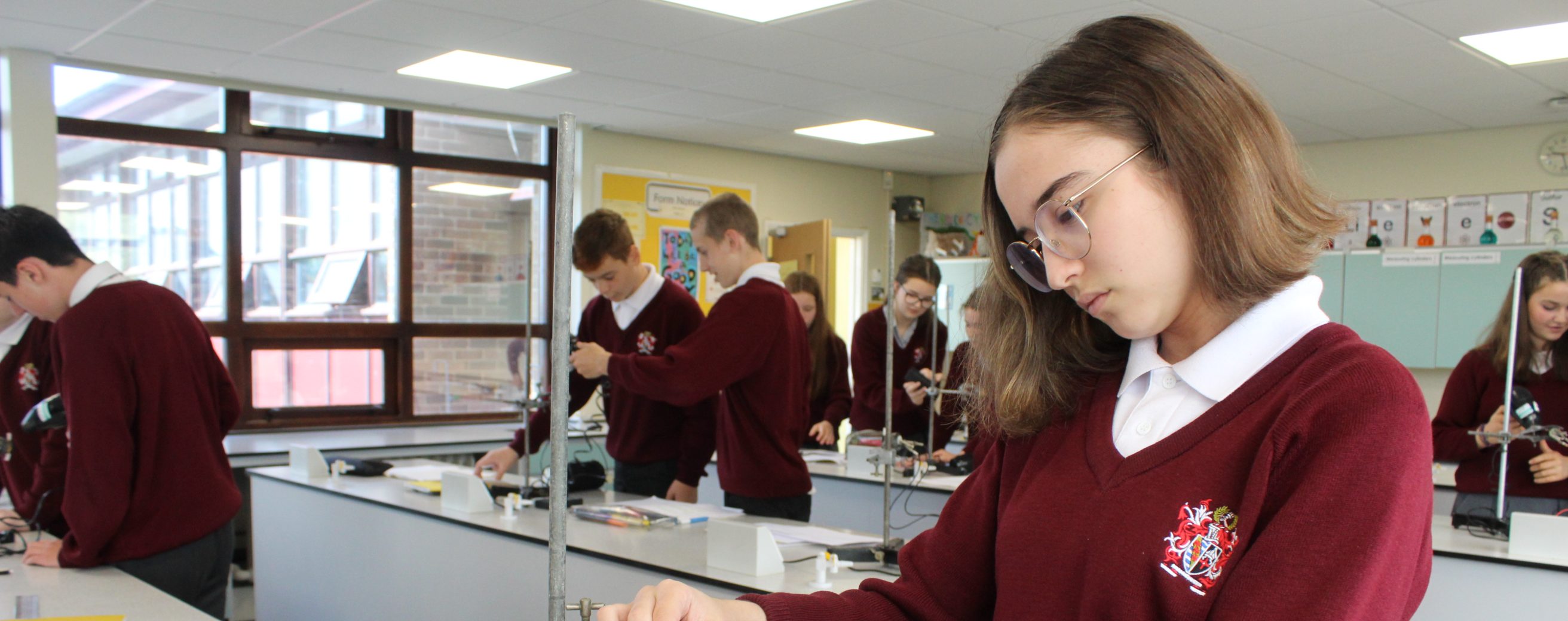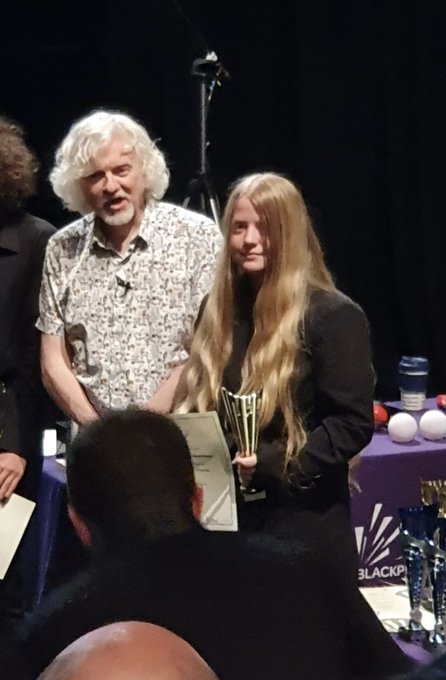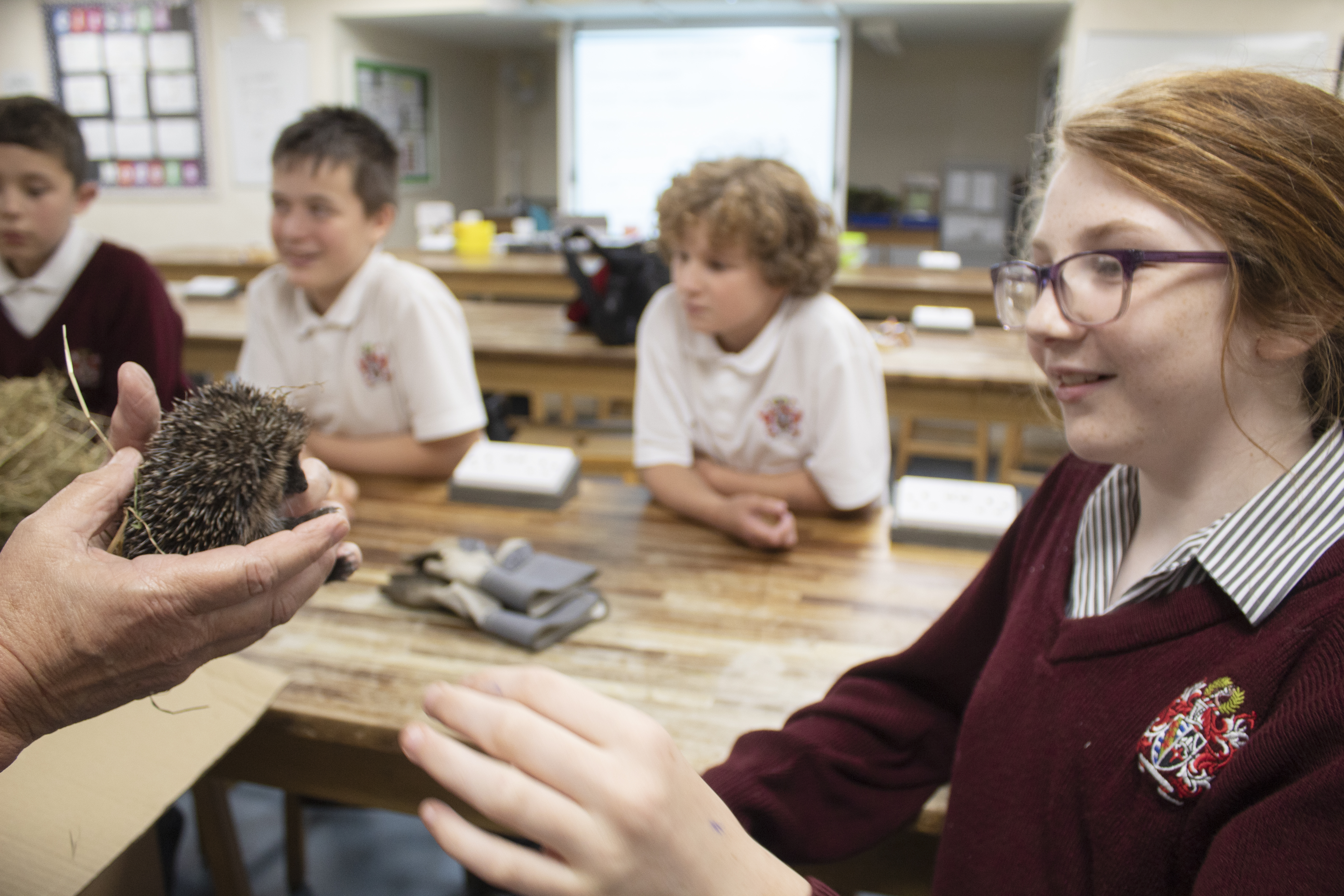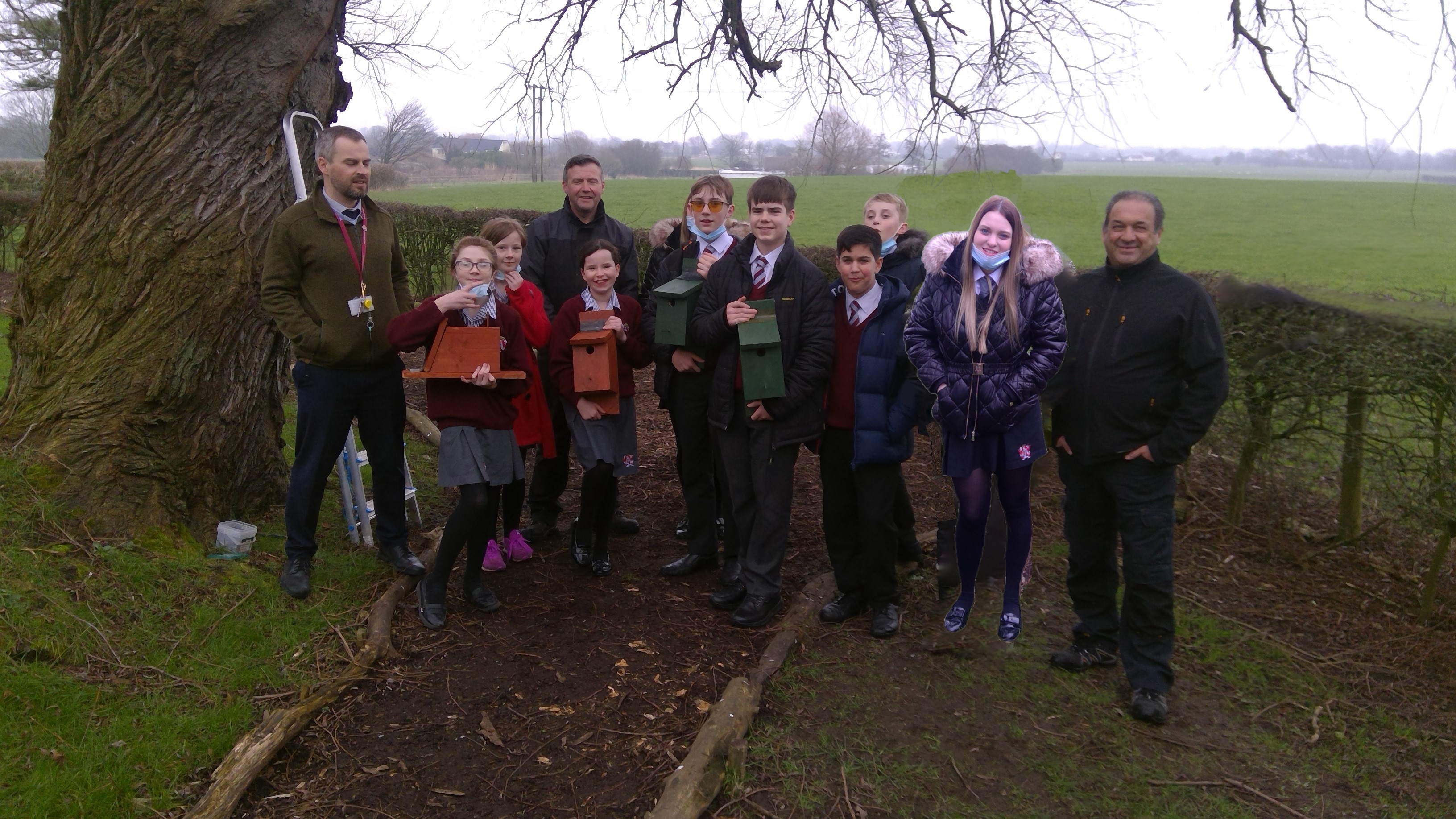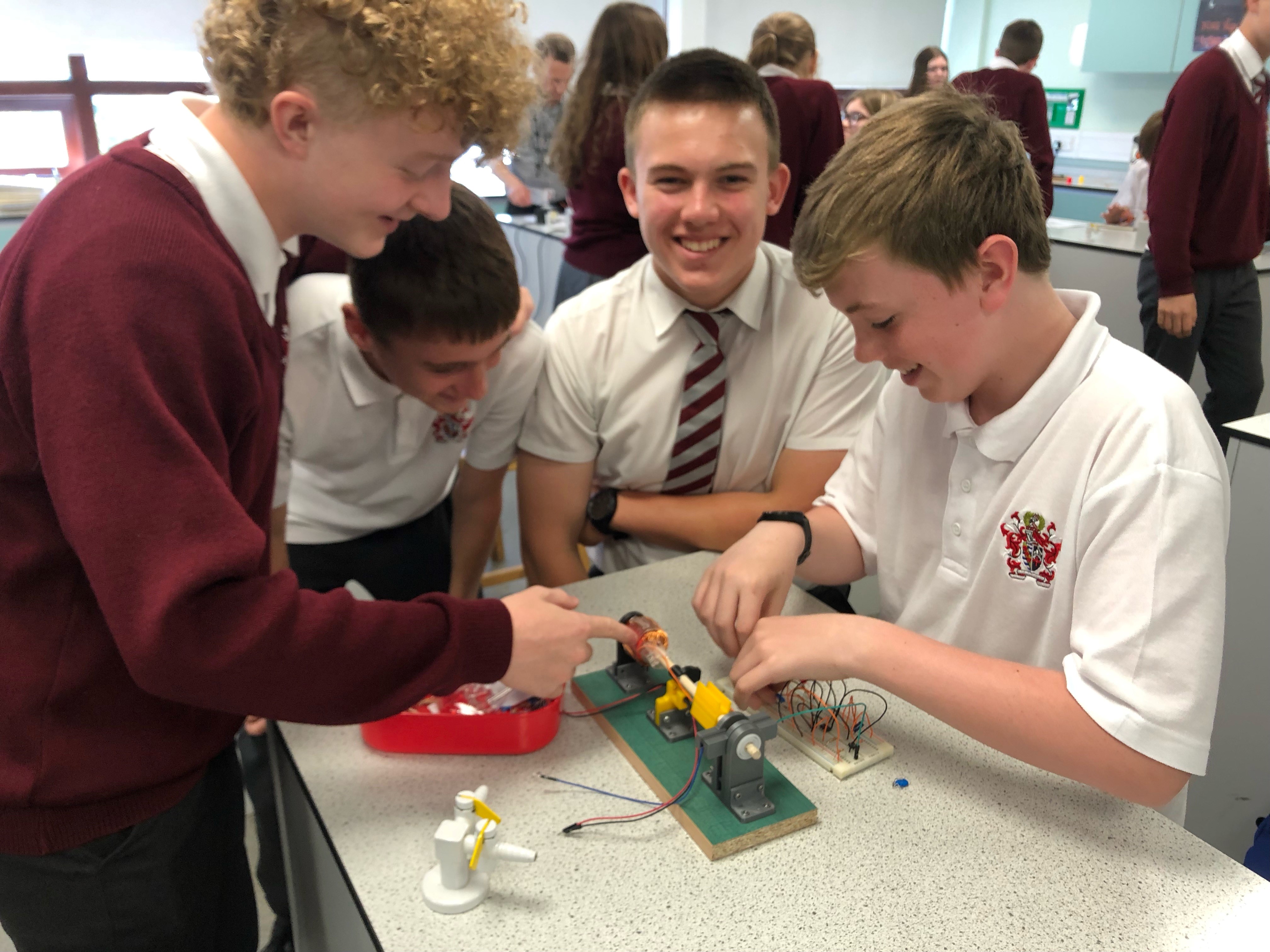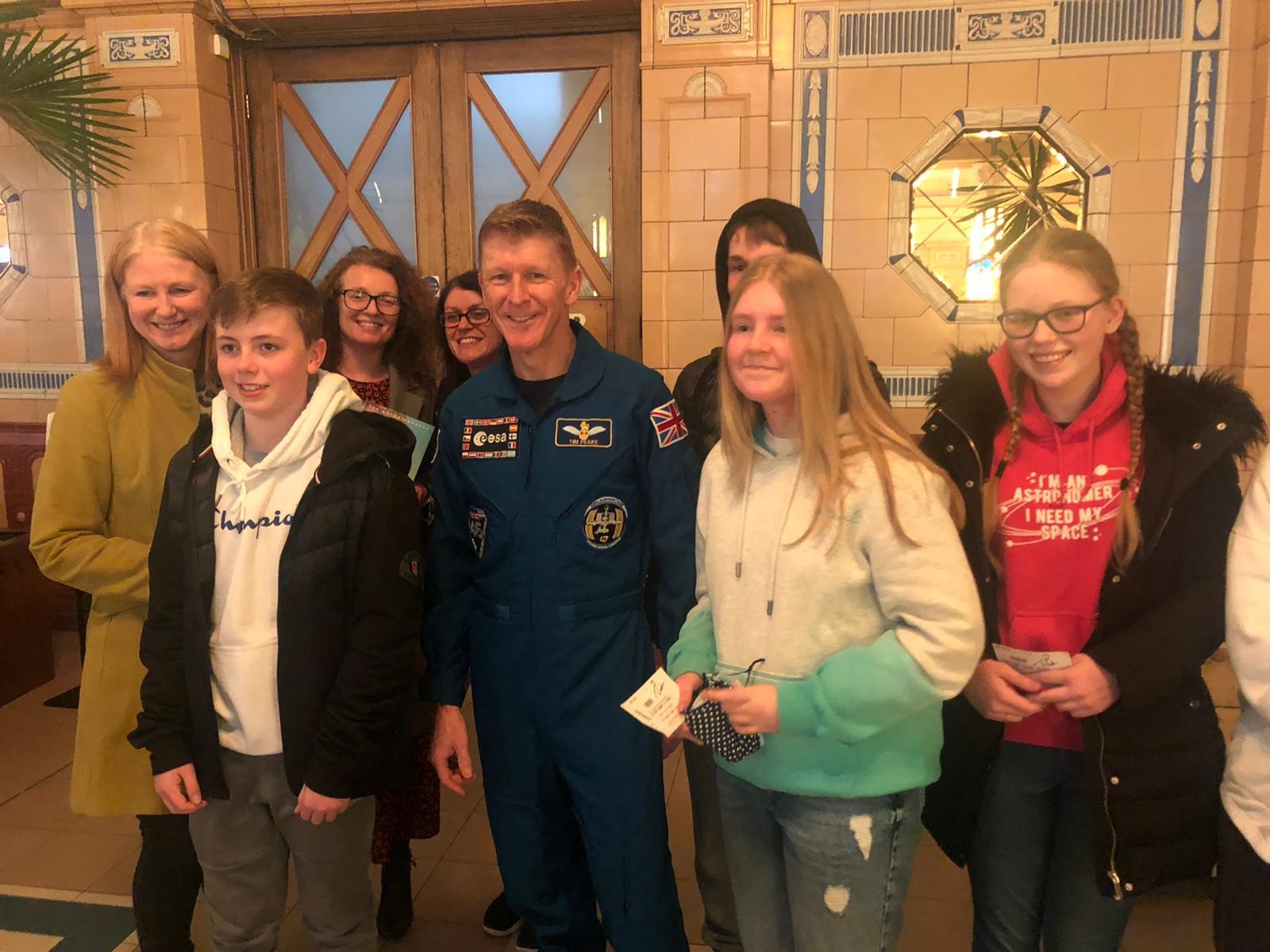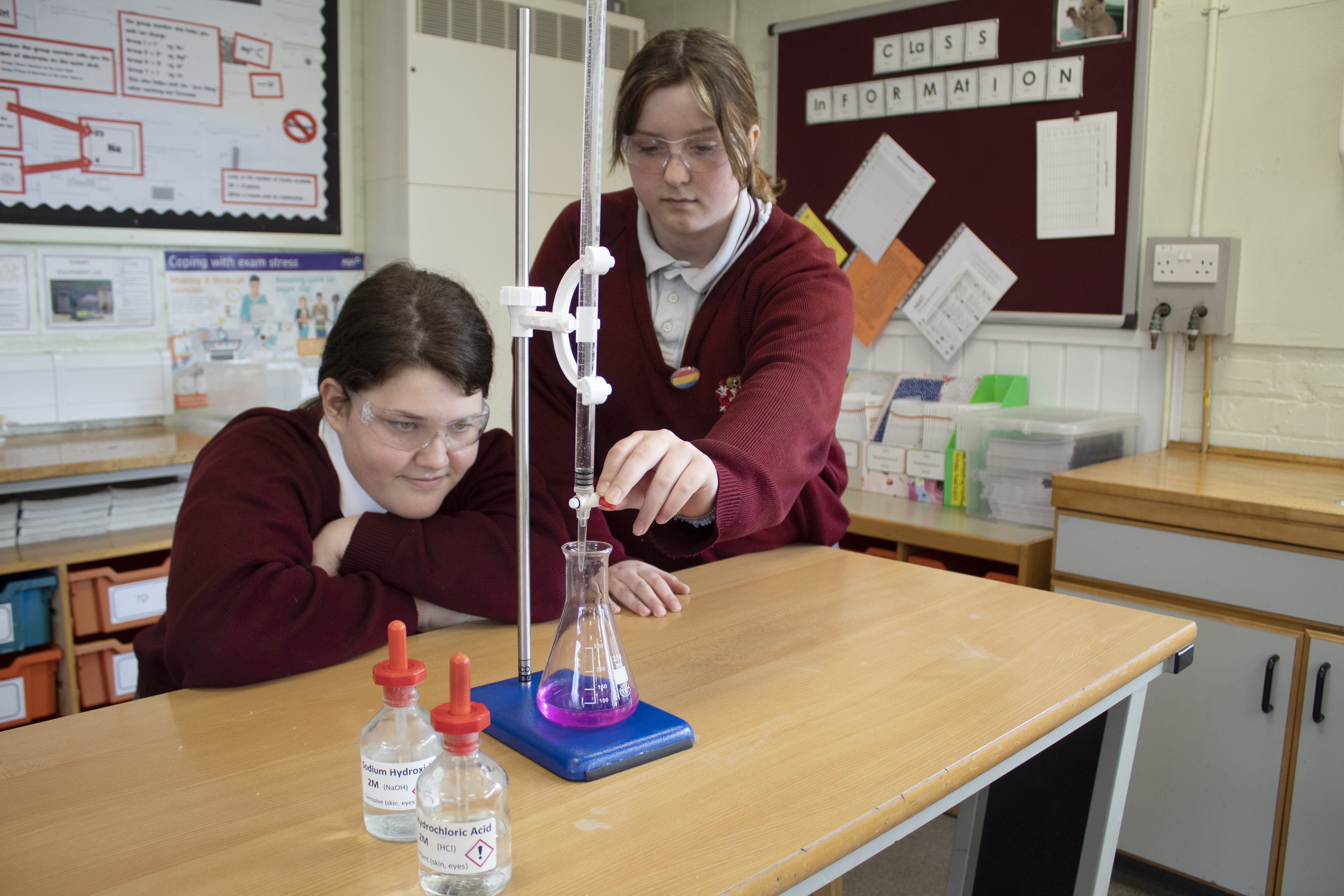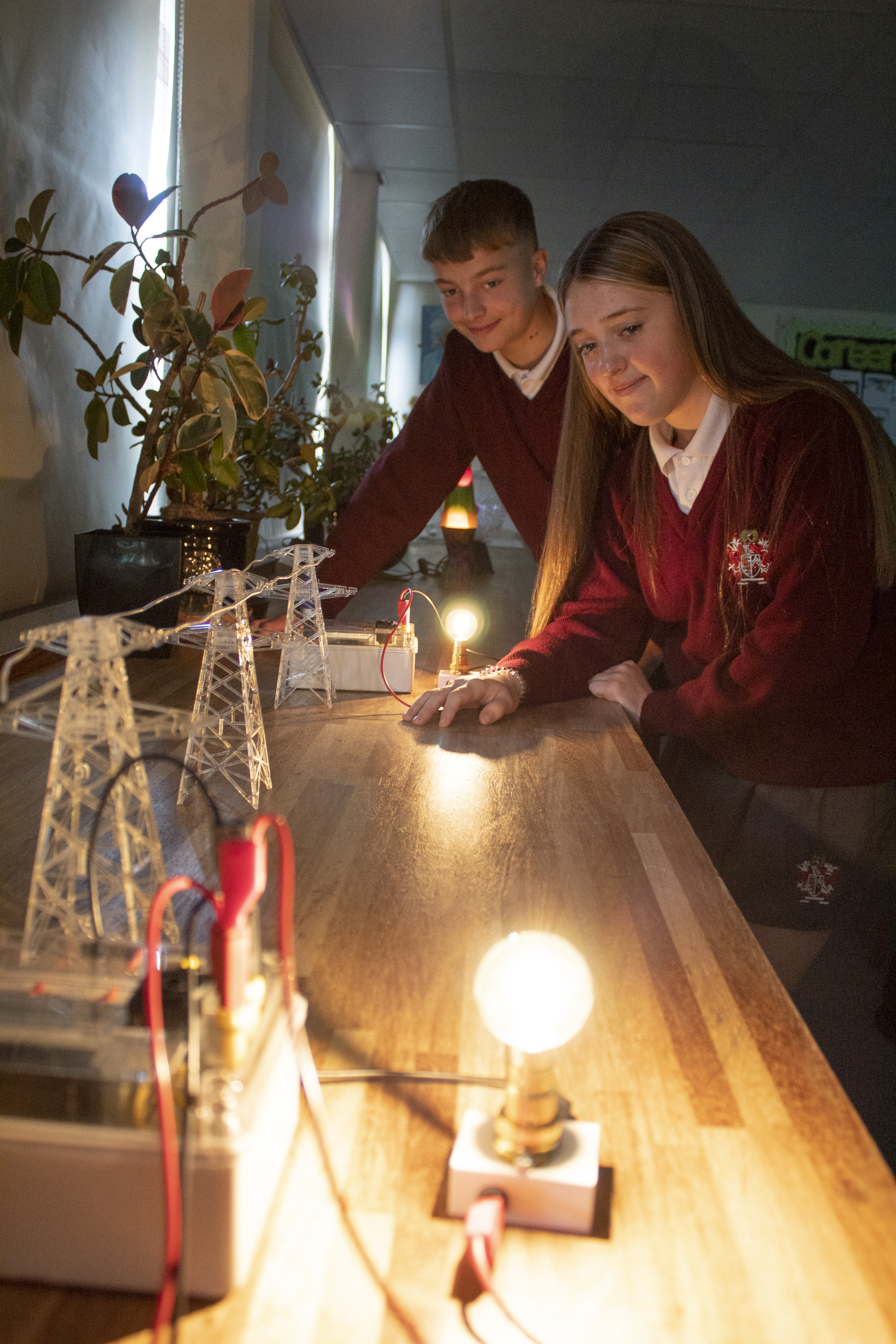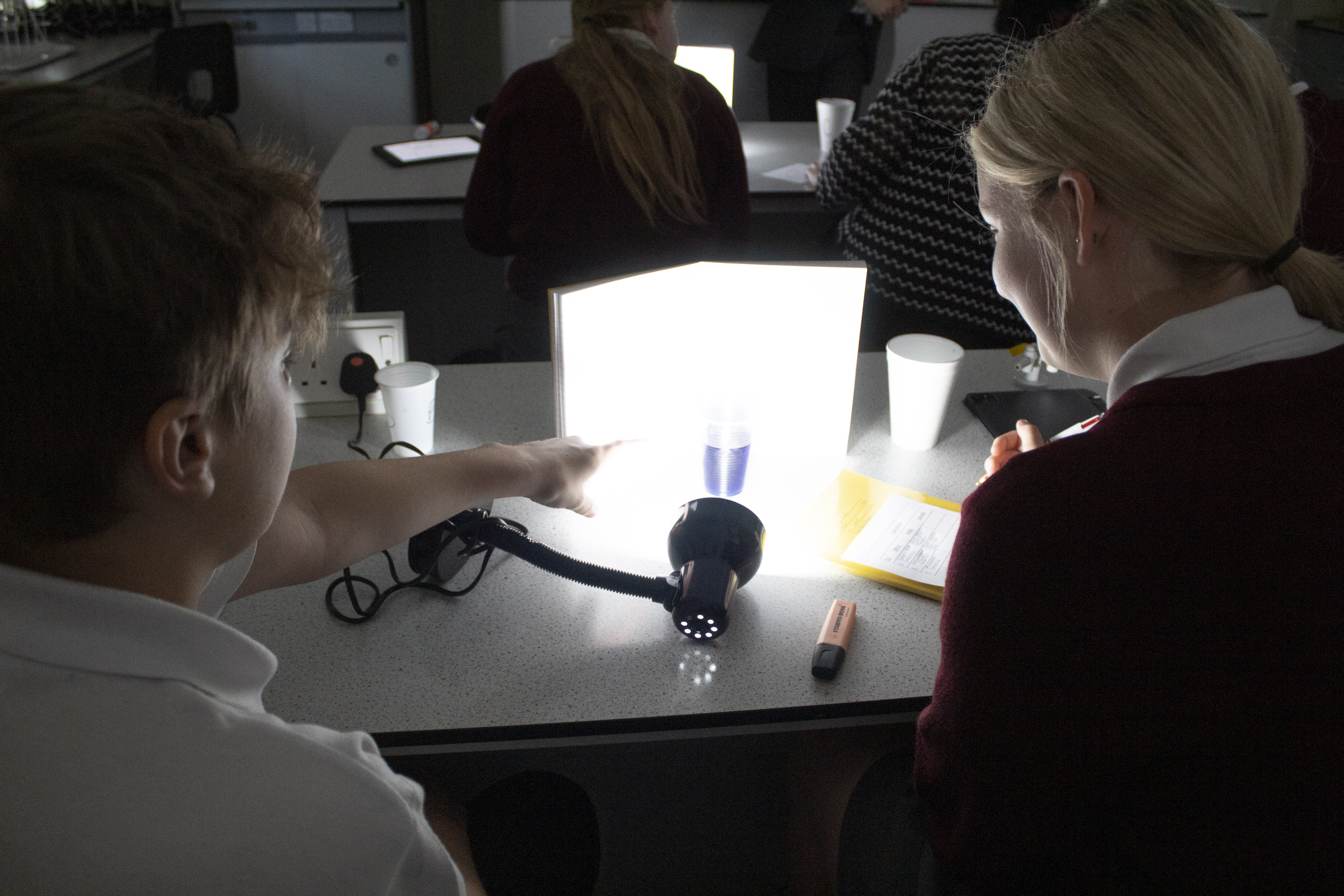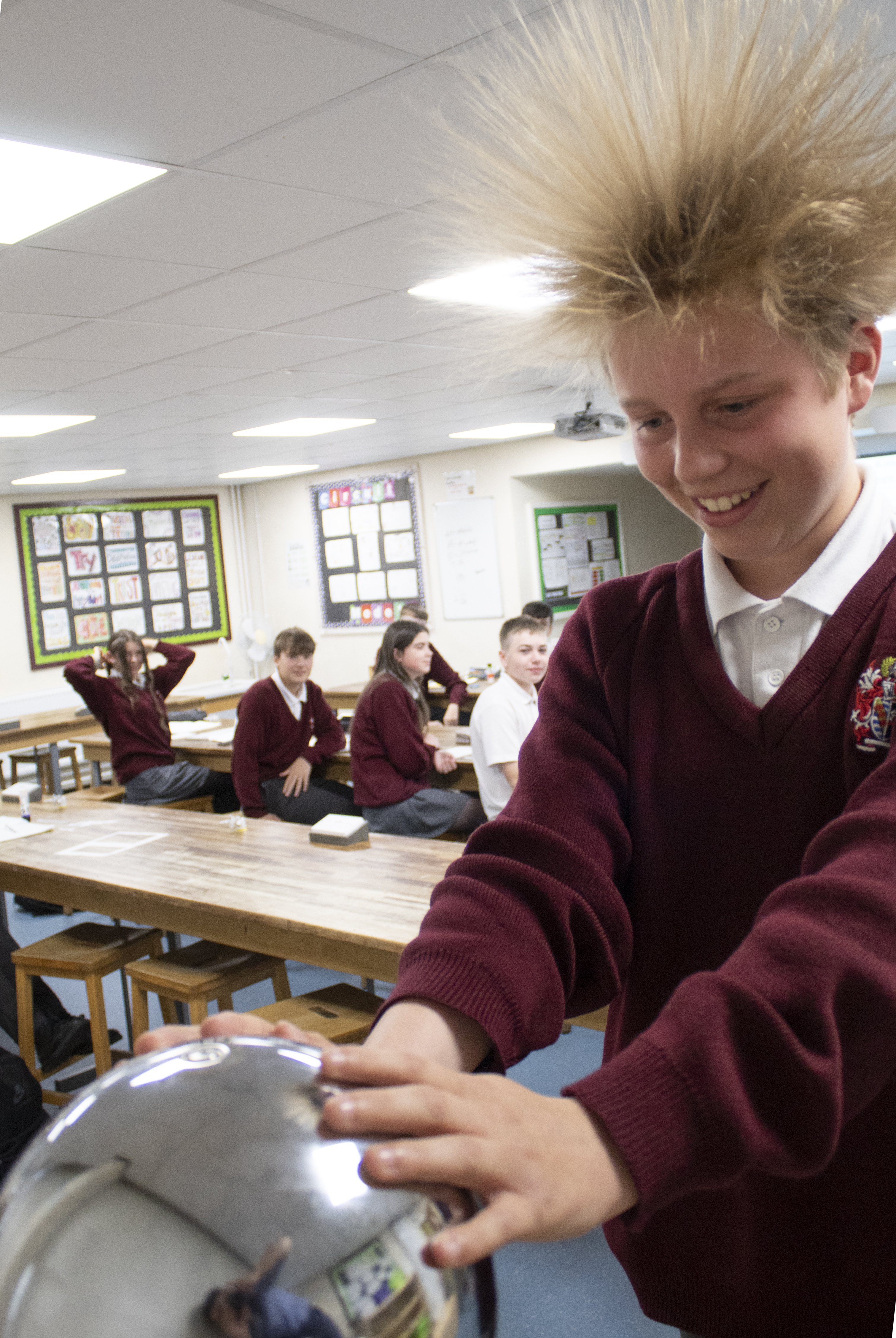Science
Subject specialists deliver the science curriculum in exciting and varied ways to ensure that all students develop a healthy curiosity for the world in which we live.
Our six fully-equipped science laboratories provide the perfect surroundings in which to learn, and we are also fortunate to have the outdoor learning environment of our own school pond.
The hands-on nature of the subject is at its very heart, and our students enjoy an active role in all science lessons. Practical investigations are a key element of science and students are expected to plan methods, collect results, analyse patterns and evaluate procedures and evidence. These skills are developed throughout the student’s school career as we help them to grow into successful scientists.
Students learn how scientists from other countries and disciplines collaborate to develop theories and solve problems. Topics are linked to relevant careers and topical news items to show students the relevance science has to every student’s life.
Teachers have ambitious expectations of all students. Support and/ or extension is provided as required to enable all students to succeed in each topic.
We encourage all students to become independent thinkers who can reflect on their own learning, and we take the time to demonstrate invaluable revision techniques to empower them to succeed further still. Students are encouraged to review their learning regularly. Developing effective revision skills is essential if students are to reach their full potential.
Key Stage 3
Students study science for 3 hours per week, one hour each of biology, chemistry and physics. Schemes of Learning include links to work covered at KS2 and are designed to give all students an understanding of the world around them. The big ideas in science are developed throughout students’ careers as they learn what it is to be a scientist and be curious about the world in which we live. Practical skills are developed, including of course, how to work safely in a lab.
Numeracy and literacy skills are developed throughout the course. Students must be able to read and plot graphs accurately and carry out calculations, for example. They must also be able to convert between units, such as from centimetres into metres. Excellent scientific vocabulary is essential if students are to explain themselves clearly. We teach students to read and write as scientists.
Key Stage 4
We offer traditional GCSE science courses which allow for progression to A-Levels and beyond. Students study either double award (AQA Combined Science (Trilogy) 8464) or triple award science (AQA GCSE Biology 8461, Chemistry 8462 & Physics 8463). In each case, all students are taught 2 hours each of biology, chemistry and physics each week, totalling 6 hours of science.
Numeracy and literacy skills become increasingly important as we prepare students for their external GCSE examinations. Numeracy skill based questions make up to 30% of marks on an external exam paper.
Practical skills are assessed on the external exam papers and are based on practical work carried out throughout the course. Good attendance is essential since it is vital students do not miss experiencing these essential experimental techniques first-hand.
Enrichment
We offer many enrichment activities to offer breadth of knowledge and application of science ideas each year. Much of this is promoted through our faculty Twitter account @Saint Aidan’s Sci
We aim for students to enjoy science and so we run science competitions every term. For example, Name the Skeleton, Halloween Science Investigation, Science Reading Challenge, Help Build the Periodic Table and Design a Science Christmas Card.
All students are invited to join our weekly Nature Club which meets during lunch time. Recent projects include making bat boxes, building bug hotels, growing vegetables and meeting baby hedgehogs! In the summer term, our Nature Club members will help to host our Primary Pond- Dipping Days.
Recent science trips have included a group of Year 8 students visiting an interactive planetarium; Year 9- 11 students and staff attending a very interesting lecture by Tim Peake, and Year 11 students attending the GCSE Science Live event.
Through our engagement with The Ogden Trust, we nominated two of our Year 11 students for the Key Stage 4 School Physicist of the Year awards held at Blackpool Sixth Form.
We regularly invite visitors into school to extend our links with local further education providers. Recently, we have hosted both the A- Level Physics and the BTEC Applied Science departments from Blackpool Sixth Form whilst they delivered taster practical sessions to our students.
We have been offering GCSE Astronomy as an extra- curricular after school activity since 2009. This is made possible through our strong links with the Astronomy Centre based at Rossall School, and this is always very popular with our students.
Science Photo Gallery
Faculty Staff
| Mrs L Tilbury | Director of Science |
| Mr J Johnson | Subject Leader for Biology |
| Mrs Z Fairhurst | Science Teacher |
| Mrs J Palin | Science Teacher |
| Mrs S Farrar | Science Teacher |
| Mr A Smith | Science Teacher, Headteacher |
| Mrs C Gilberston | Science Teacher |
| Mrs J Tinsley | Science Teacher |
| Mrs A O'Donoghue | Science Teacher |
| Ms J Sedgwick | Senior Science Technician |
| Mrs K Grimmett | Science Technician |

